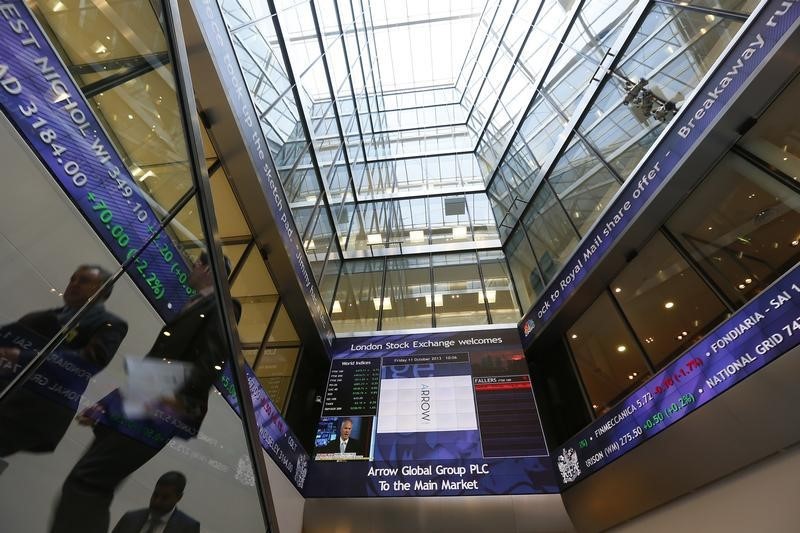TSX runs higher on rate cut expectations
Investing.com -- FTSE 100 companies are projected to post a 6% year-on-year decline in first-half 2025 earnings, with the Energy sector expected to be the largest drag, according to Deutsche Bank’s recent report.
Excluding Energy, earnings are forecast to remain flat. In contrast, Financials are expected to contribute positively.
Sequentially, earnings are set to rise 2% over the second half of 2024. Real Estate and Consumer Discretionary are forecast to lead sector growth, with gains of 14% and 12%, respectively.
Energy is expected to contract by 37% year-on-year, while Basic Materials are forecast to drop 21%.
Sales for the FTSE 100 are expected to fall 2% year-on-year, with the Energy sector again weighing on results.
Sales excluding Energy are projected to be flat. Financials and Real Estate are forecast to be the strongest contributors.
On a sequential basis, sales are expected to dip slightly compared to H2 2024, while aggregate profit margins are projected to expand due to improved earnings performance.
Earnings revisions since April have been sharp, with H1 and full-year 2025 FTSE 100 earnings forecasts cut by 7%, primarily amid concerns over global trade tensions.
Though recent weeks have seen fewer negative adjustments, consensus estimates remain low.
The brokerage notes this could leave room for mild positive surprises as the trade environment has stabilized since April.
For full-year 2025, consensus expects FTSE 100 earnings to fall by nearly 3%. Despite revising its own forecast lower in March, Deutsche Bank (ETR:DBKGn) sees potential for a 2% annual increase, citing improved GDP growth in the U.K. and eurozone, easing trade uncertainty, and additional rate cuts by the Bank of England and European Central Bank.
However, political risks, further trade disruptions, and currency strength remain downside risks.
Deutsche Bank also examined Q1 corporate commentary. Most FTSE 100 firms kept guidance unchanged.
Companies reported limited direct impact from tariffs, with greater concern around indirect effects such as softer global demand.
Some companies flagged cost pressures from rising National Insurance Contributions, though they maintained cost guidance and cited ongoing efficiency efforts.
Currency impacts were mixed, with a weaker dollar benefitting some firms reporting in USD, while a stronger pound posed challenges.
In contrast to the FTSE 100, the FTSE 250 is expected to report a 1% year-on-year earnings increase in H1.
This growth is mainly attributed to Real Estate and Energy. The mid-cap index is more U.K.-focused and has faced smaller downward earnings revisions, at 5% since April. Sequentially, FTSE 250 earnings are projected to decline by 1% compared to H2 2024.
